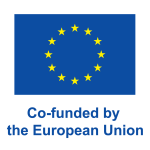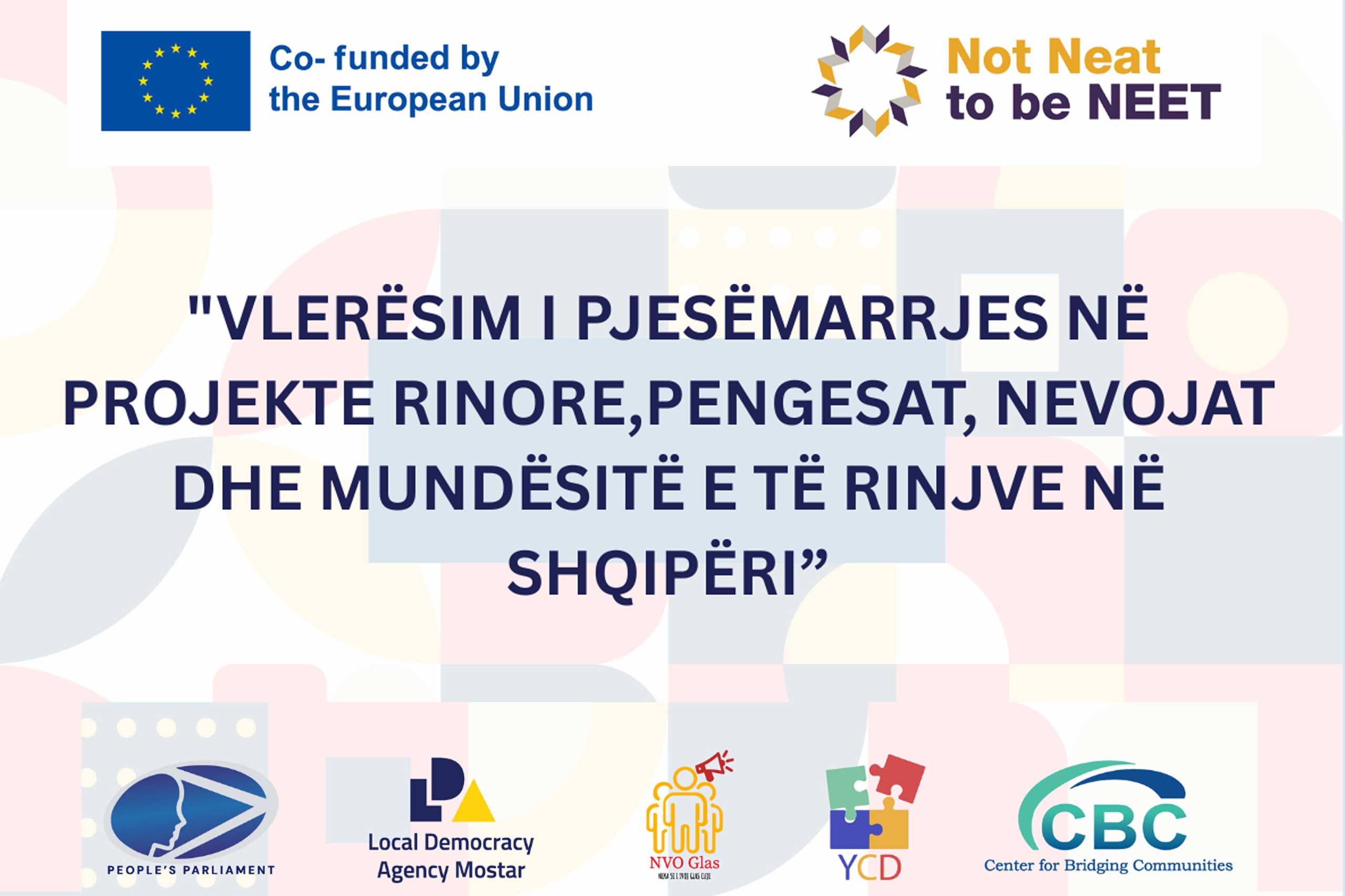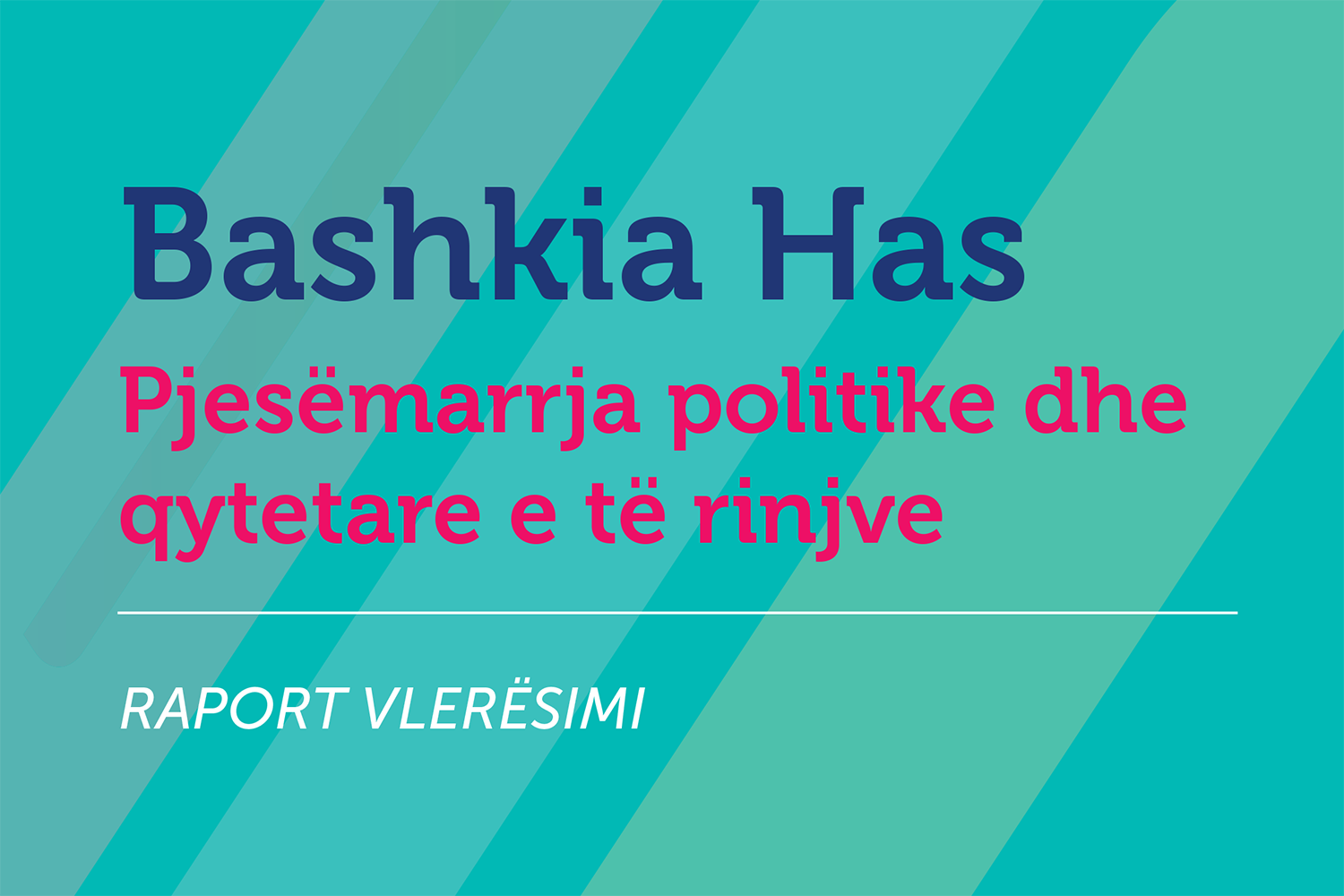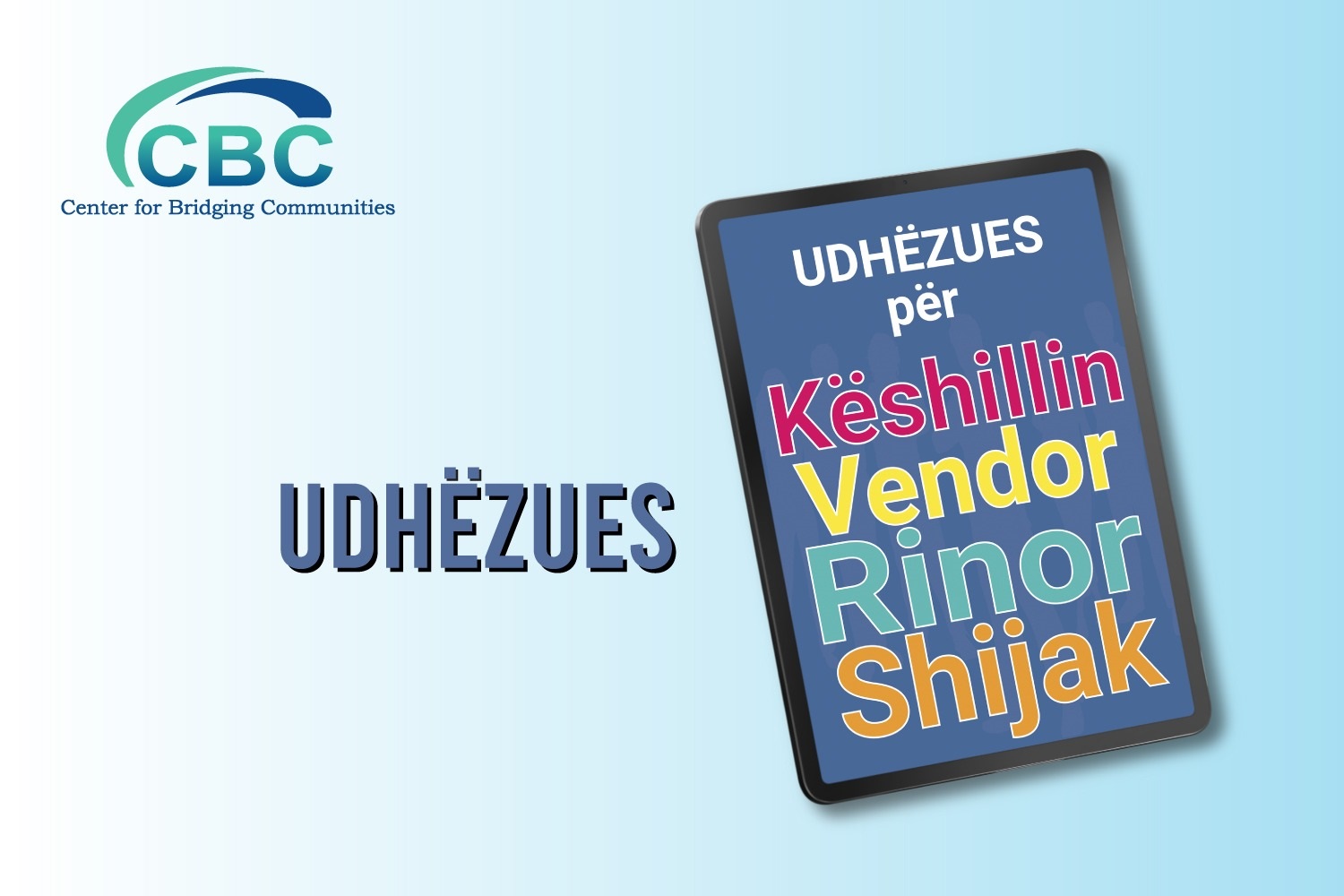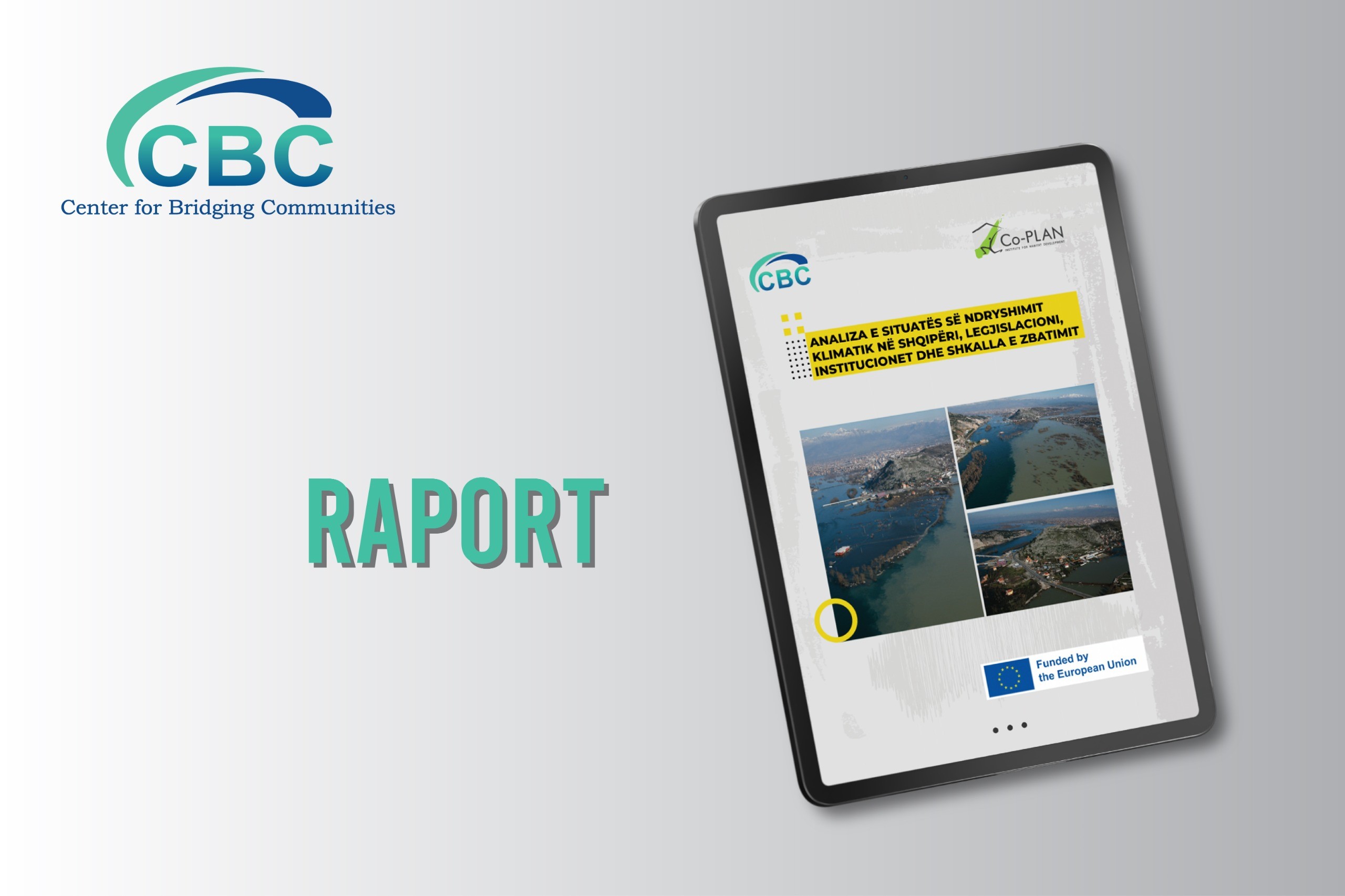Research: “Assessment of participation in youth projects, barriers, needs and opportunities of young people in Albania”
The research “Assessment of participation in youth projects, barriers, needs and opportunities of young people in Albania” was conducted by Center for Bridging Communities as part of the project “Not Neat to be NEET”—Building Capacities of the Western Balkans Youth Organizations for More Inclusive Projects and Full Participation of Youth with Fewer Opportunities, funded by the Erasmus+ Program.
This study aims to gain deeper and broader insight from youth with fewer opportunities and youth workers who are part of community-based organizations of youth that design projects and implement services for youth with fewer opportunities. This research, based on a mixed-method approach collected qualitative and quantitative data on the position and status of youth workers and young people in Albania. Methodological instruments used in the study included a survey, one focus group with youth workers and one focus group with youth and youth with fewer opportunities.
From the survey of a total of 99 young people aged 15-30 years, it turned out that the unemployment rate of the young people surveyed is 51%. The duration of unemployment for those young people who report being unemployed ranges from 6 months, who occupy (53%), to 5 years, and women occupy (84%) of unemployed youth, and (58%) of them reside in towns or villages. The majority of young people surveyed (73%) have attended formal or non-formal education activities during their lifetime. Most participants report that economic issues directly or indirectly impact the youth’s participation in activities. They are compelled to work and miss time to participate in activities, or low economic income prevents them from attending language courses that would enable them to participate in international activities. Some participants mention that youth cannot afford to pay in advance for their participation and must wait until reimbursement.
The participants in the focus groups, from their perspective, describe a range of barriers that make it challenging for youth in general to participate in activities. The barriers reported are cultural barriers (language, gender stereotypes, individual and social beliefs, and perceptions about the benefits of activities); information barriers (lack of information or excessive and repetitive information reduces interest and motivation to participate); social and economic barriers (school doesn’t permit participation during school hours, youth must work); and time barriers.
There is a variation in the perception of the understanding of “youth inclusion,” such as increasing the number of young people participating in activities, boosting motivation and commitment to active participation, encouraging participation in a wide spectrum of areas, and ensuring equal inclusion without distinction.
For more information about key findings and recommendations and in order to read or download the full study, please send us an email at info@cbc.org.al.
This project is funded by the European Union. Views and opinions expressed are however those of the author(s) only and do not necessarily reflect those of the European Union or European Education and Culture Executive Agency (EACEA). Neither the European Union nor the EACEA can be held responsible for them.
